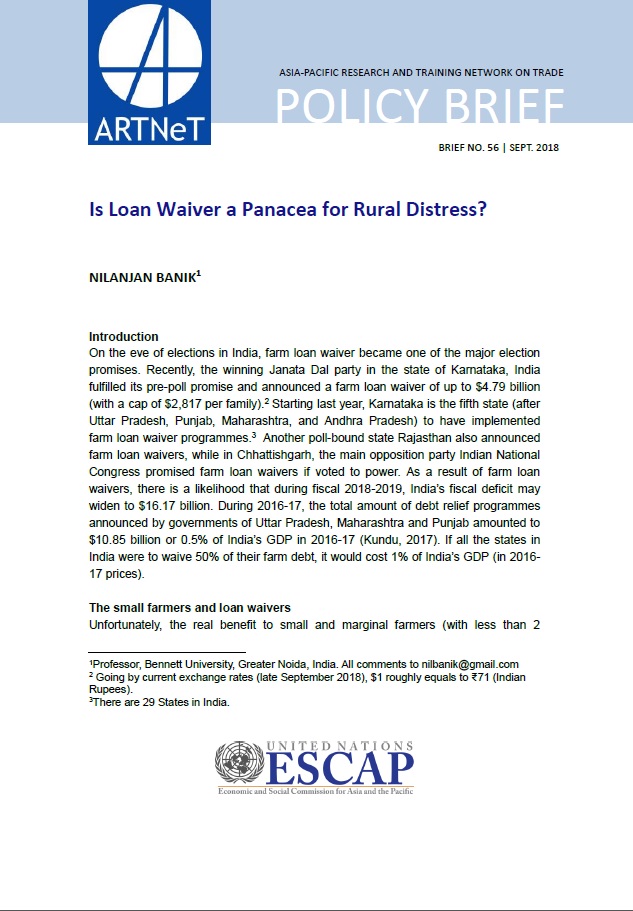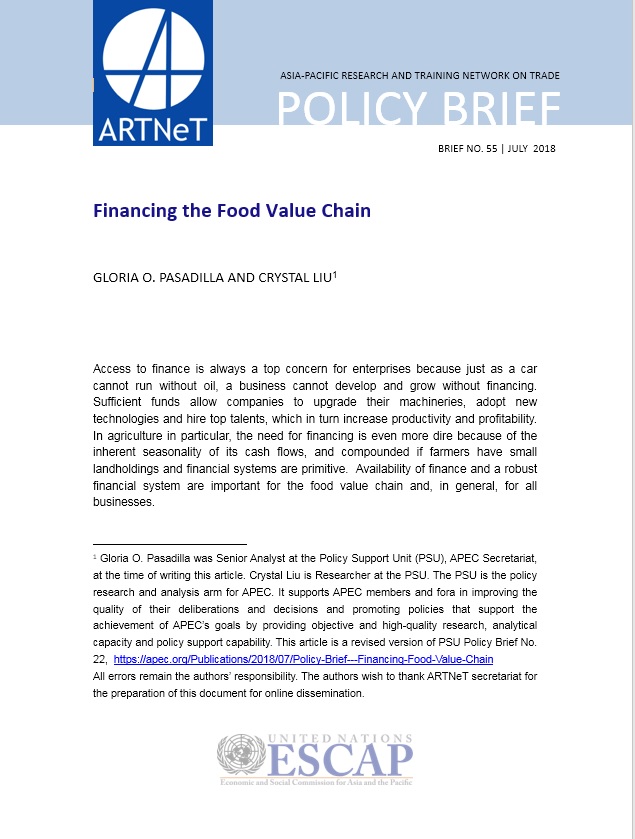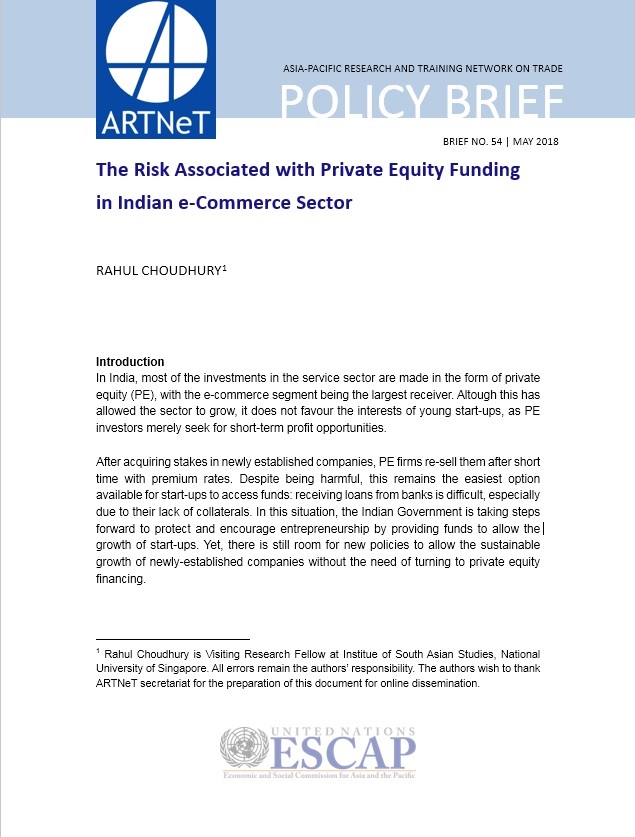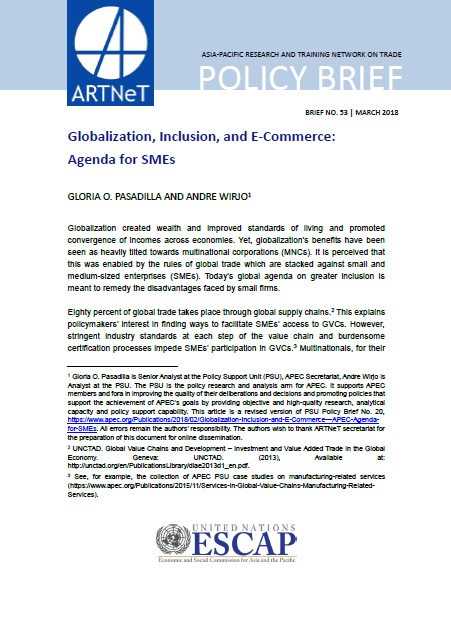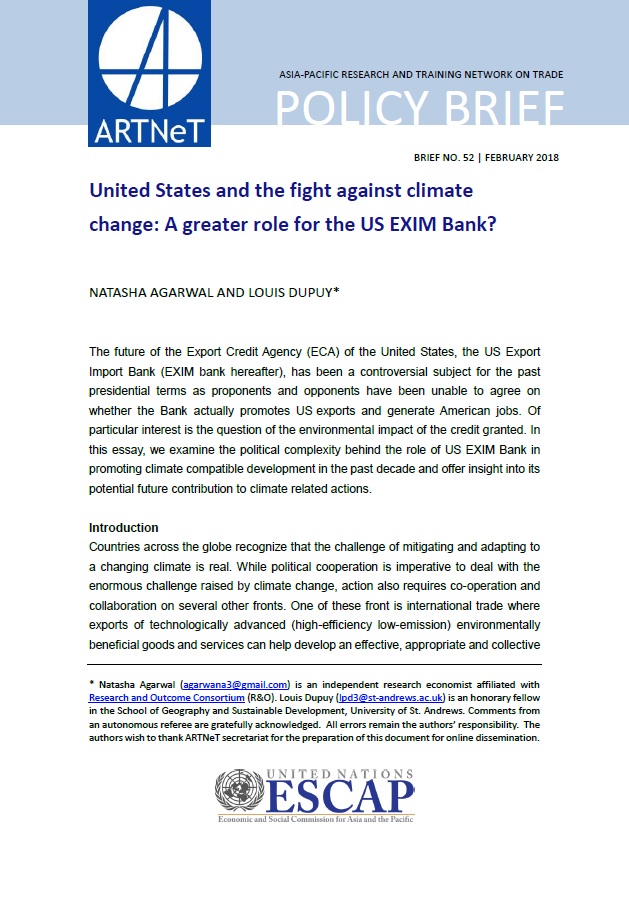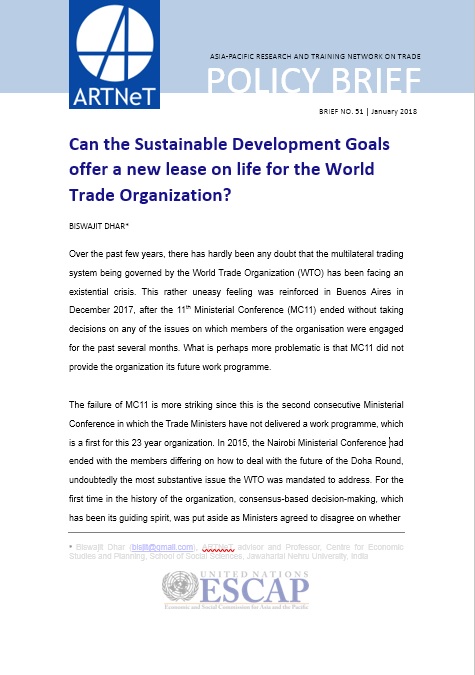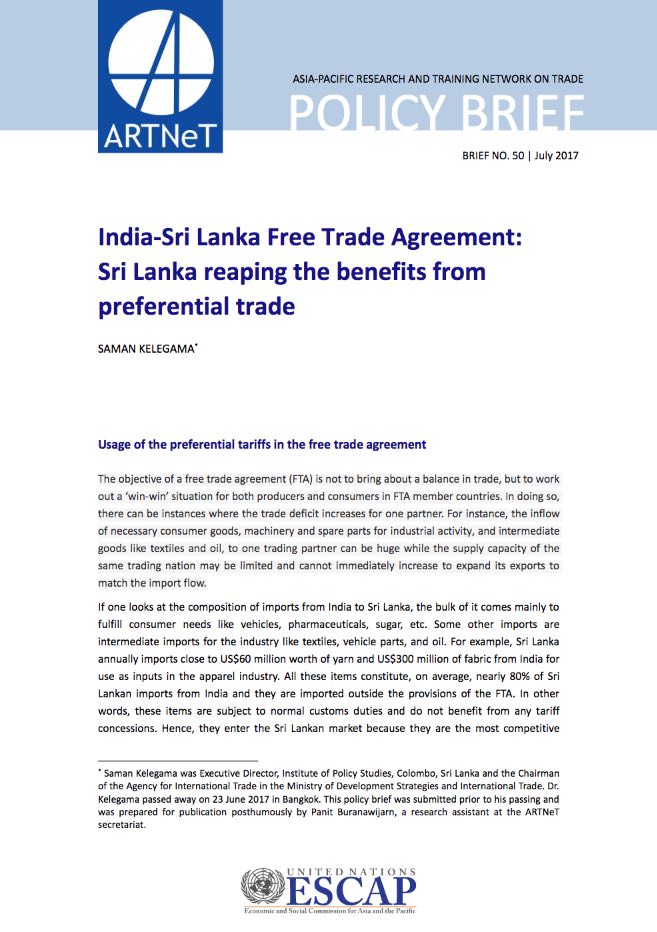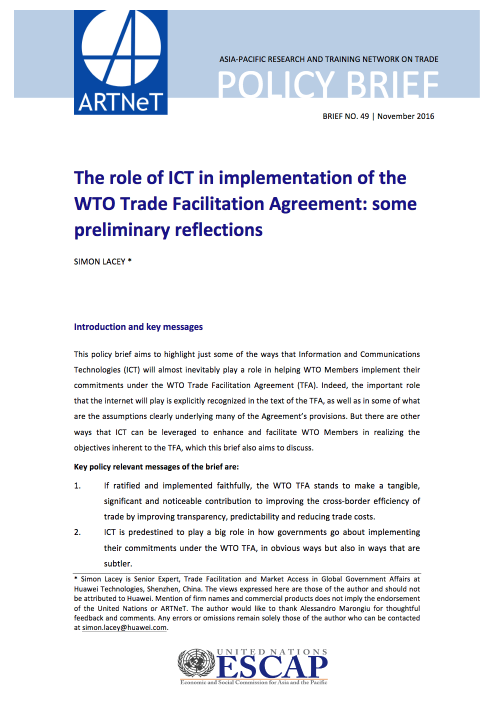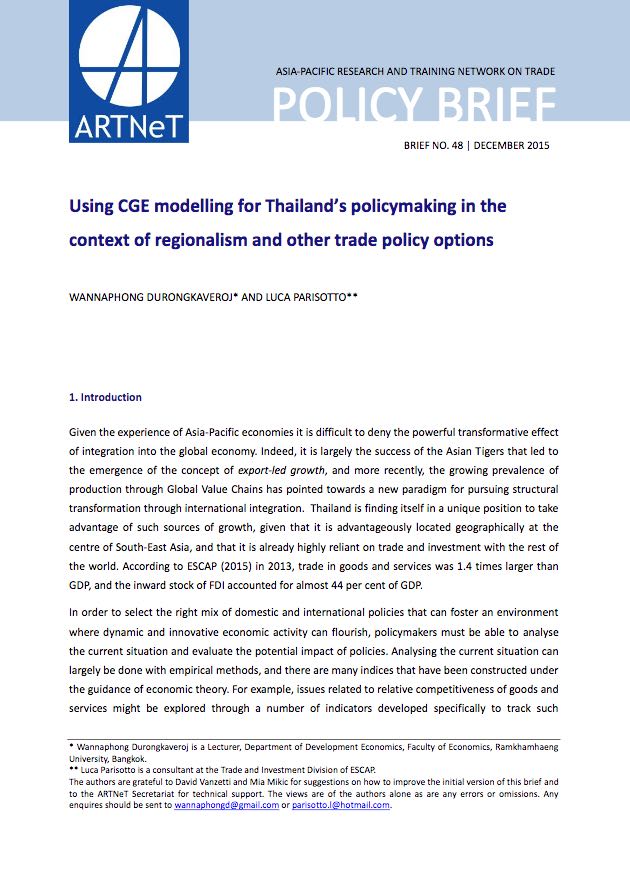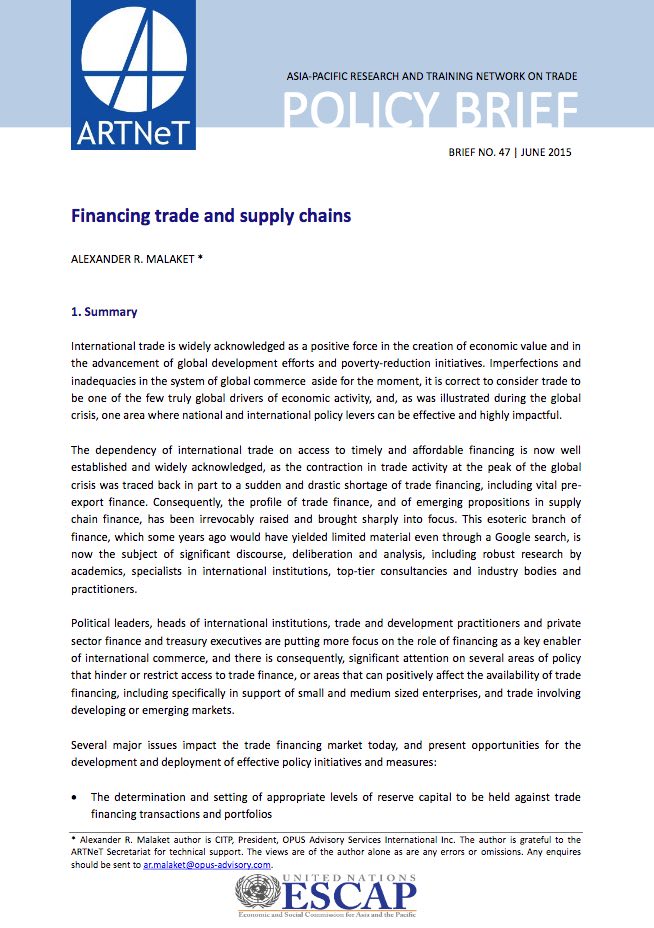Is Loan Waiver a Panacea for Rural Distress?
On the eve of elections in India, farm loan waiver became one of the major election promises. According to some estimates, as a result of farm loan waivers, there is a likelihood that during fiscal 2018-2019, India’s fiscal deficit may widen to $16.17 billion. Furthermore, if all the states in India were to waive 50% of their farm debt, it would cost 1% of India’s GDP (in 2016-17 prices). The brief argues that the farm loan waivers are not the solution to farm crisis.

